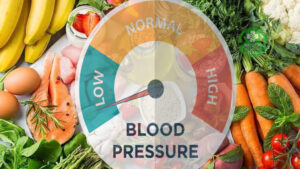When it comes to breast cancer, early detection is crucial. However, not all cases are diagnosed in their early stages. Stage 3 breast cancer is an advanced form of the disease that requires immediate attention and a comprehensive treatment plan. In this article, we will delve into the topic of stage 3 breast cancer life expectancy, exploring the factors that influence it, the available treatment options, and the importance of a positive mindset throughout the journey.
Understanding Stage 3 Breast Cancer
Stage 3 breast cancer is characterized by the spread of cancer cells beyond the breast and nearby lymph nodes to the surrounding tissues. The cancer may have invaded the chest wall or the skin, and it may have spread to multiple lymph nodes or even to distant organs. The staging system for breast cancer provides valuable information about the extent of the disease and helps determine the appropriate treatment path.
Subtypes of Stage 3 Breast Cancer
Stage 3 breast cancer can be further classified into three subtypes, based on the size of the tumor and the extent of lymph node involvement:
- Stage 3A: In this stage, the tumor may be of any size, and cancer cells have spread to 4-9 nearby lymph nodes or to the lymph nodes near the breastbone.
- Stage 3B: At this stage, cancer has spread to the chest wall or the skin of the breast and may have invaded up to 9 nearby lymph nodes.
- Stage 3C: This stage is further divided into two categories: stage 3C1 and stage 3C2. In stage 3C1, cancer cells have spread to 10 or more nearby lymph nodes. In stage 3C2, cancer has spread to the lymph nodes above or below the collarbone.
Each subtype presents its own challenges and requires a tailored treatment approach.
Treatment Options for Stage 3 Breast Cancer
Stage 3 breast cancer is considered locally advanced, meaning that it has spread beyond the breast but has not yet reached distant organs. The treatment options for stage 3 breast cancer usually involve a combination of therapies, including surgery, radiation therapy, chemotherapy, targeted therapy, and hormone therapy.
Surgery
Surgery is often the first line of treatment for stage 3 breast cancer. The goal of surgery is to remove the tumor and the affected lymph nodes. Depending on the extent of the disease, a mastectomy (removal of the entire breast) or a lumpectomy (removal of the tumor and a small portion of surrounding tissue) may be performed. In some cases, a reconstructive surgery may follow to restore the appearance of the breast.
Radiation Therapy
Radiation therapy uses high-energy beams to destroy cancer cells. It is typically administered after surgery to eliminate any remaining cancer cells and reduce the risk of recurrence. Radiation therapy may also be used to relieve symptoms and manage pain in cases where the cancer has spread to other parts of the body.
Chemotherapy
Chemotherapy involves the use of drugs to kill cancer cells throughout the body. It is often administered before or after surgery to shrink tumors, destroy remaining cancer cells, and reduce the risk of recurrence. Chemotherapy can be given intravenously or orally and may cause side effects such as hair loss, nausea, and fatigue.
Targeted Therapy
Targeted therapies are designed to specifically target cancer cells or the processes that support their growth. These therapies can be used in combination with chemotherapy or alone, depending on the specific characteristics of the cancer. Targeted therapies may include monoclonal antibodies, which attach to cancer cells and inhibit their growth, or small molecule drugs that interfere with specific signaling pathways involved in cancer development.
Hormone Therapy
Hormone therapy is used to treat breast cancers that are hormone receptor-positive. This type of therapy aims to block the effects of hormones, such as estrogen, that promote the growth of cancer cells. Hormone therapy may involve the use of medications that suppress hormone production or drugs that prevent hormones from binding to cancer cells.
Factors Influencing Stage 3 Breast Cancer Life Expectancy
Several factors can influence the life expectancy of individuals diagnosed with stage 3 breast cancer. These factors are essential in determining the prognosis and treatment plan:
Tumor Size and Lymph Node Involvement
The size of the tumor and the number of lymph nodes involved play a significant role in determining the life expectancy of someone with stage 3 breast cancer. Larger tumors and a higher number of affected lymph nodes indicate a more advanced disease, which may require more aggressive treatment.
Hormone Receptor Status
The hormone receptor status of the cancer cells can also impact the prognosis. Breast cancers that are hormone receptor-positive tend to have a better prognosis compared to hormone receptor-negative tumors. Hormone receptor-positive tumors can be targeted with hormone therapy, which has shown to be effective in reducing the risk of recurrence.
HER2 Status
The HER2 status of the tumor is another important factor to consider. HER2-positive breast cancers tend to be more aggressive and have a higher risk of recurrence. However, targeted therapies specifically designed for HER2-positive tumors have significantly improved outcomes for these patients.
Overall Health and Age
The overall health of an individual and their age can also influence life expectancy. Individuals in good health with no underlying medical conditions may tolerate treatments better and have a higher chance of a positive outcome. Additionally, younger individuals tend to have better survival rates compared to older individuals.
Response to Treatment
The response to treatment is a critical factor in determining life expectancy. Some individuals may respond well to treatment and achieve complete remission, while others may experience disease progression despite aggressive therapies. Regular monitoring and adjustments to the treatment plan are necessary to ensure the best possible outcome.
Inspiring Stories: Overcoming Stage 3 Breast Cancer
While the diagnosis of stage 3 breast cancer can be overwhelming, many individuals have faced the disease head-on and triumphed over it. Their stories serve as a beacon of hope and inspiration for others going through a similar journey.
Case Study: Sarah’s Story
Sarah, a 42-year-old mother of two, was diagnosed with stage 3 breast cancer after experiencing persistent breast pain and noticing a lump. Despite the challenging diagnosis, Sarah maintained a positive mindset and sought the best possible treatment options. She underwent a mastectomy followed by chemotherapy and radiation therapy. With the unwavering support of her family and friends, Sarah completed her treatment successfully and remains cancer-free five years later. Her story showcases the power of resilience and determination in overcoming stage 3 breast cancer.
Case Study: Lisa’s Story
Lisa, a 58-year-old retired teacher, was diagnosed with stage 3C breast cancer after routine screening revealed abnormalities. The news came as a shock, but Lisa decided to tackle the disease head-on. She underwent a lumpectomy followed by chemotherapy, radiation therapy, and hormone therapy. Throughout her treatment, Lisa maintained a positive attitude, leaned on her support system, and engaged in activities that brought her joy. Today, Lisa is an advocate for breast cancer awareness and a living testament to the power of hope and perseverance.
Maintaining a Positive Mindset
A positive mindset is essential when facing stage 3 breast cancer. While the journey may be challenging, maintaining a hopeful outlook can have a profound impact on overall well-being and treatment outcomes. Here are some tips to help maintain a positive mindset:
- Seek Support: Surround yourself with a strong support system of family, friends, and medical professionals who can provide emotional and practical support throughout your journey.
- Focus on Self-Care: Take the time to care for yourself physically, emotionally, and mentally. Engage in activities that bring you joy, practice relaxation techniques, and prioritize your well-being.
- Stay Informed: Educate yourself about the disease, treatment options, and available support resources. Knowledge empowers you to make informed decisions and take an active role in your treatment.
- Practice Mindfulness: Incorporate mindfulness techniques, such as meditation and deep breathing exercises, into your daily routine. These practices can help reduce stress and promote a sense of calm.
- Connect with Others: Join support groups or online communities where you can connect with others who are going through a similar experience. Sharing your journey and hearing others’ stories can provide comfort and motivation.
Conclusion
Stage 3 breast cancer is a challenging diagnosis that requires immediate attention and comprehensive treatment. Factors such as tumor size, lymph node involvement, hormone receptor status, HER2 status, overall health, age, and response to treatment all play a role in determining life expectancy. However, it is important to remember that statistics do not define an individual’s journey. Many individuals have overcome stage 3 breast cancer and continue to lead fulfilling lives.
By maintaining a positive mindset, seeking support, and engaging in self-care, individuals can navigate thechallenges of stage 3 breast cancer with resilience and hope. Inspiring stories of survivors like Sarah and Lisa serve as reminders that a positive outlook can make a difference in the face of adversity.
Frequently Asked Questions About Stage 3 Breast Cancer
1. What is the survival rate for stage 3 breast cancer?
The survival rate for stage 3 breast cancer varies depending on various factors, including the subtype of the cancer, the individual’s overall health, and the response to treatment. It is important to consult with a medical professional for a personalized prognosis.
2. Can stage 3 breast cancer be cured?
While there is no guarantee of a cure, stage 3 breast cancer can be treated and managed effectively. With a comprehensive treatment plan and a positive mindset, individuals can achieve remission and live fulfilling lives.
3. What are the treatment options for stage 3 breast cancer?
Treatment options for stage 3 breast cancer typically include a combination of surgery, radiation therapy, chemotherapy, targeted therapy, and hormone therapy. The specific treatment plan will depend on the individual’s unique circumstances and the characteristics of the cancer.
4. How long does treatment for stage 3 breast cancer last?
The duration of treatment for stage 3 breast cancer can vary depending on the individual’s response to therapy and the specific treatment plan. Treatment may span several months or even years. It is important to follow the recommended treatment schedule and regularly communicate with healthcare providers.
5. How can I support a loved one with stage 3 breast cancer?
Supporting a loved one with stage 3 breast cancer involves providing emotional support, offering practical assistance, and being a listening ear. Be present, show empathy, and respect their journey. Offer to accompany them to medical appointments or help with daily tasks. Educate yourself about the disease to better understand their experiences.
Summary
Stage 3 breast cancer is an advanced form of the disease that requires immediate attention and a comprehensive treatment plan. It can be classified into subtypes based on tumor size and lymph node involvement. Treatment options for stage 3 breast cancer include surgery, radiation therapy, chemotherapy, targeted therapy, and hormone therapy. Factors influencing life expectancy include tumor size, lymph node involvement, hormone receptor status, HER2 status, overall health, age, and response to treatment. Maintaining a positive mindset throughout the journey is essential and can be supported through seeking support, practicing self-care, staying informed, practicing mindfulness, and connecting with others. While stage 3 breast cancer poses challenges, many individuals have overcome it and continue to lead fulfilling lives. Remember, each journey is unique, and statistics do not define an individual’s outcome.
By understanding the factors influencing stage 3 breast cancer life expectancy, exploring treatment options, and embracing a positive mindset, individuals can navigate this journey with courage, hope, and perseverance.



